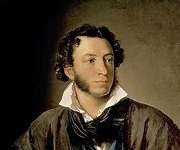Russian Language Day is celebrated worldwide today (June 6), the birthday of the greatest Russian poet, playwright, and novelist Alexander Pushkin of the Romantic era.
It was initiated by the United Nations (UN) in order to support and promote multilingualism and cultural diversity. One of the goals of this programme is to uphold the equality of all six official languages of the UN: Arabic, Chinese, English, French, Russian and Spanish.
The Russian language is one of the world’s most widespread languages: it is currently spoken by 254 million people1, 1.3 of which in the Middle East and North Africa and 100 thousand in Sub-Saharan Africa2. This makes it substantial for international communication. The Russian diaspora in African countries is one of the most representative with two to fifteen thousand Russian speakers living in each state3. Not surprisingly the cultural interaction between Russia and Africa has become stronger and deeper over the years.
Educational opportunities for African students have been expanding for many years aligned with the Russian language earning more recognition. Russia ranks 6th in the number of foreign students, with 35,000 of them coming from African countries4. Moscow is home to the Institute of Africa of the Russian Academy of Sciences and the Peoples’ Friendship University of Russia, which recently reclaimed the name of the great fighter for the independence of Africa Patrice Lumumba.
This spring the Ministry of Education and Science of Russia announced a doubling of the number of budget places in Russian universities for students from African countries as part of expanding humanitarian cooperation. Next year their number will be up to 4.7 thousand places5. Other programmes that are currently developed include the opening of Russian educational centers in Africa and the training of national teachers to staff African secondary schools6.
Cultural exchange and humanitarian cooperation between Russia and Africa will be one of the main themes of the forthcoming Second Russia-Africa Summit and Economic and Humanitarian Forum, which will be held from 26 to 29 July in St. Petersburg. The summit is the key and largest-scale event in Russian-African relations. It will identify new vectors for expanding cooperation between Russia and Africa in all spheres: politics, security, economy, science and technology, cultural and humanitarian spheres. The event is aimed at bringing about a fundamentally new level of mutually beneficial partnership to meet the challenges of the 21st century.
Pushkin’s father came of an old boyar family; his mother was a granddaughter of Abram Hannibal, who, according to family tradition, was an Abyssinian princeling bought as a slave at Constantinople (Istanbul) and adopted by Peter the Great, whose comrade in arms he became.

